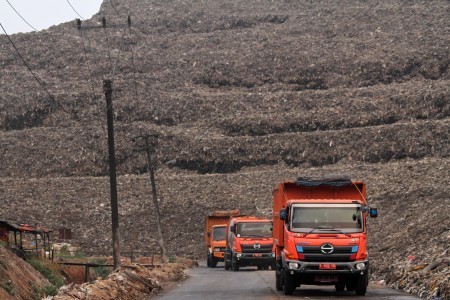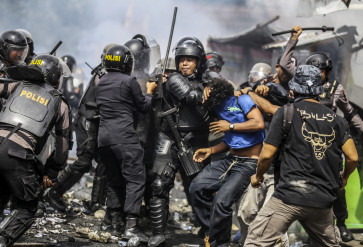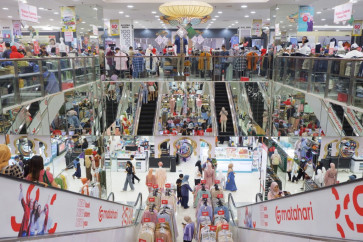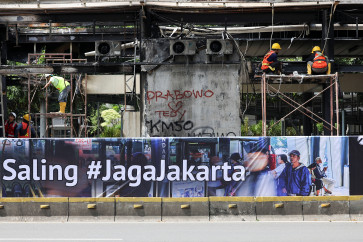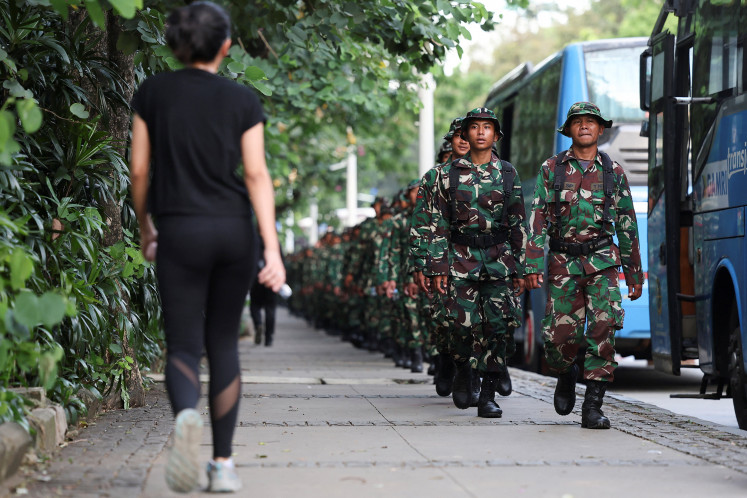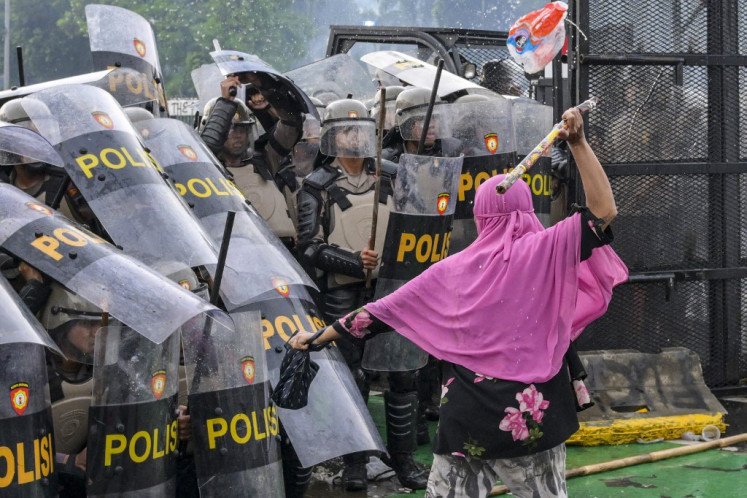Popular Reads
Top Results
Can't find what you're looking for?
View all search resultsPopular Reads
Top Results
Can't find what you're looking for?
View all search resultsInadequate landfills worsen Indonesia’s waste problems
Most regions still use open-dumping landfills. According to 2018 Environment and Forestry Ministry data, more than half of Indonesia’s landfills operate as open-dumping sites.
Change text size
Gift Premium Articles
to Anyone
F
or residents of Malang in East Java, the Supit Urang landfill is bad luck, having faced a spate of misfortunes in 2018 alone, from a waste avalanche claiming the life of a scavenger to the arrest of more than 40 regional council members for alleged graft.
In July, 45-year-old scavenger Agus Sujarno lost his life when a mountain of trash crumbled on top of him. The local administration then prohibited scavengers from entering the landfill.
Roughly two months later, Supit Urang become the center of a corruption case implicating former mayor Mochamad Anton and 40 of the city’s 45 councillors.
The latter were suspected of accepting gratuities amounting to Rp 5.8 billion (US$410,909), some of which was allegedly related to the allocation of waste management funds for the Malang administration.
The landfill and its series of unfortunate events are only part of the various waste management problems that has been plaguing not only Malang and its surrounding areas but also other regions across the archipelago.
Landfills are central to the country’s waste management system, because they end up storing most of its household waste. Because of this, the 2008 Waste Management Law requires every region to manage their waste at a sanitary site rather than in open-dumping site.
In open-dumping sites, waste is piled and disposed of in a manner that is not environmentally friendly, increasing the risk of fires and trash avalanches. At a sanitary landfill, the waste is buried to accelerate decomposition and prevent it from burning or becoming a source of diseases.
However, most regions still use open-dumping landfills. According to 2018 Environment and Forestry Ministry data, more than half of Indonesia’s landfills operate as open-dumping sites. Supit Urang is one of them.
Ministry data shows that the Malang administration is only capable of processing 473 tons of waste in the 16-hectare Supit Urang landfill each day, or about 72 percent of waste produced daily in the city.
“We realize we have to solve this landfill problem. Therefore, we hope we can operate an additional 15 ha of landfill next to Supit Urang by October or November,” said Malang Environment Agency head Rahmat Hidayat.
Environment and Forestry Ministry waste management director Novrizal Tahar said the problem lay in the commitment of each regional administration in managing their waste rather than the availability of infrastructure.
“The Public Works and Public Housing Ministry designed each landfill according to the standards of a sanitary landfill. Therefore, they should be operated as sanitary sites rather than open-dumping sites,” he said.
However, Novrizal conceded that regional administrations faced a number of hurdles, such as a lack of soil to bury their waste or land to build a sanitary site.
Such problems are not faced by Malang alone. Four local administrations in West Java that are located next to each other — Bandung City, Cimahi, Bandung and West Bandung — have been sharing the Sarimukti landfill.
The four regions produce around 3,800 tons of waste daily, while the landfill only has the capacity to manage 2,000 tons of waste each day. The landfill is also using the open-dumping approach, even though it was designed as a sanitary site.
“Regional administrations should solve this issue soon, as the amount of waste produced daily is increasing along with the increase in population and [people’s spending habits],” Novrizal said.
Research conducted by Zakianis from the University of Indonesia’s (UI) School of Public Health shows that sites for reducing, reusing and recycling waste (TPS3R) and waste banks supervised by regional administration are able to process more garbage compared to those managed by residents, as the former receives training and guidance from the administration.
“There should be a system to guide, supervise and monitor TPS3R’s performance in reducing waste. Such a system would only be possible with strategic planning,” Zakianis said.

